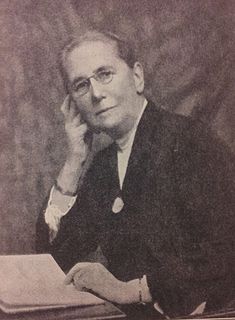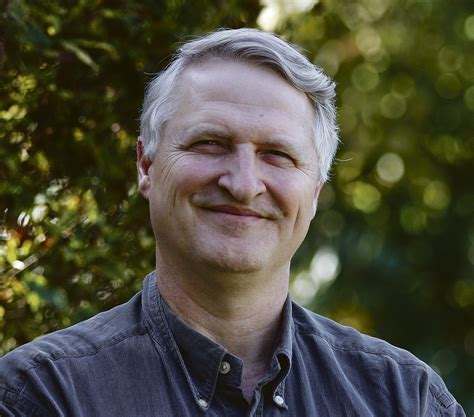A Quote by Aiden Wilson Tozer
Peace of heart that is won by refusing to bear the common yoke of human sympathy is a peace unworthy of a Christian. To seek tranquility by stopping our ears to the cries of human pain is to make ourselves not Christian but a kind of degenerate stoic having no relation either to stoicism or Christianity.
Related Quotes
Peace is a condition of the heart. It's a state of mind, of tranquility, of calmness, and of centeredness. It's an understanding of the reciprocal nature of love, a presence, a journey. It's all of our aspirations. Peace is not a luxury or merely the absence of war, it's a kind of grace - which we're all entitled to as people who are alive. Peace is an active presence of the capacity for a higher evolution of human awareness.
From our sorrow we might seek out the sweetness and the good that is often associated with and peculiar to our challenge. We can seek out those memorable moments that are frequently hidden by the pain and agony. We can find peace in extending ourselves to others, using our own experiences to provide hope and comfort. And we can always remember with great solemnity and gratitude Him who suffered most to make it all right for us. And by so doing we can be strengthened to bear our burdens in peace. And then, the 'works of God' might be manifest.
The question of real, lasting world peace concerns human beings, so basic human feelings are also at its roots. Through inner peace, genuine world peace can be achieved. In this the importance of individual responsibility is quite clear; an atmosphere of peace must first be created within ourselves, then gradually expanded to include our families, our communities, and ultimately the whole planet.
Paganism is that view of life which finds the highest goal of human existence in the healthy and harmonious and joyous development of existing human faculties. Very different is the Christian ideal. Paganism is optimistic with regard to unaided human nature, whereas Christianity is the religion of the broken heart.
If patriotism is good, then Christianity, which gives peace, is an idle dream, and the sooner this teaching is eradicated, the better. But if Christianity really gives peace, and if we really want peace, then patriotism is a leftover from barbarous times, which must not only not be evoked and taught, as we now do, but which must be eradicated by all means of preaching, persuasion, contempt, and ridicule. If Christianity is the truth, and if we wish to live in peace, then we must not only have no sympathy for the power of our country, but must even rejoice in its weakening and contribute to it.
It was not Christianity which freed the slave: Christianity accepted slavery; Christian ministers defended it; Christian merchants trafficked in human flesh and blood, and drew their profits from the unspeakable horrors of the middle passage. Christian slaveholders treated their slaves as they did the cattle in their fields: they worked them, scourged them, mated them , parted them, and sold them at will. Abolition came with the decline in religious belief, and largely through the efforts of those who were denounced as heretics.
The scriptures are basically a narrative of God's interaction with human kind. If we lose this notion of God's desire for relationship with human beings, we're in danger of losing the heart of the Christian faith. Doctrines, of course, will flow from that, but when the scriptures call us to Believe, we're being called to put our trust in Someone, not just agree with a bunch of doctrine. Demons could do that. We are to commit ourselves to Christ.
We can never obtain peace in the world if we neglect the inner world and don't make peace with ourselves. World peace must develop out of inner peace. Without inner peace it is impossible to achieve world peace, external peace. Weapons themselves do not act. They have not come out of the blue. Man has made them. But even given those weapons, those terrible weapons, they cannot act by themselves. As long as they are left alone in storage they cannot do any harm. A human being must use them. Someone must push the button. Satan, the evil powers, cannot push that button. Human beings must do it.




































